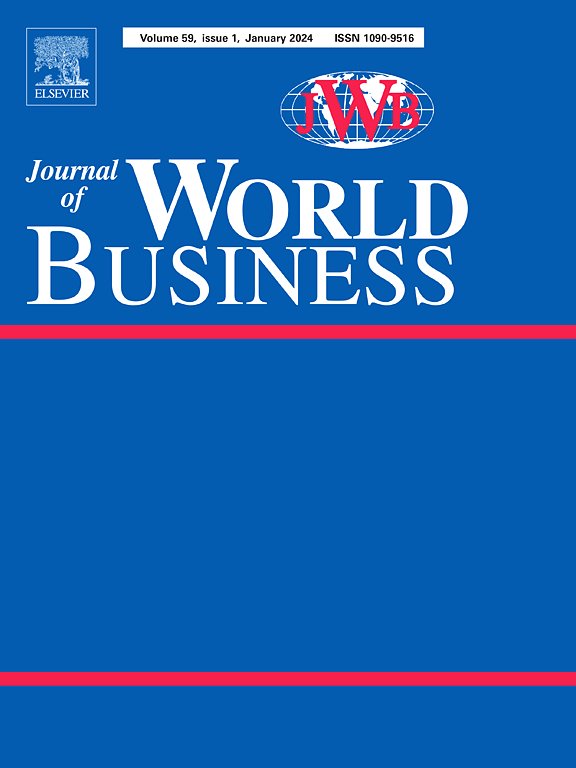克服国际化过程中新型人力资源管理实践的合法性挑战:以两个送餐平台为例
IF 8.8
1区 管理学
Q1 BUSINESS
引用次数: 0
摘要
外卖平台似乎混淆了企业国际化必须获得合法性的组织逻辑。我们通过研究Deliveroo和Uber Eats如何扩展到澳大利亚和荷兰,为跨国企业人力资源管理的文献做出贡献。使用组织合法性视角,我们追踪这些平台如何应对基于“无雇佣的人力资源管理”的商业模式所带来的合法性挑战。我们的纵向时间敏感定性案例研究设计揭示了平台如何动态地重新配置其人力资源管理活动,并与监管机构进行合作。他们不是追求彻底的合法性,而是寻求“争取时间”,在当地建立足迹,并在可能的情况下进行制度创新。本文章由计算机程序翻译,如有差异,请以英文原文为准。
Overcoming legitimacy challenges of novel HRM practices during internationalization: The case of two food-delivery platforms
Food-delivery platforms seemingly confound the organizational logic that firms, upon internationalization, must gain legitimacy. We contribute to the literature on HRM in multinational enterprises by studying how Deliveroo and Uber Eats expanded into Australia and the Netherlands. Using an organizational legitimacy lens, we trace how these platforms navigate the legitimacy challenges arising from their business models based on ‘HRM without employment’. Our longitudinal time-sensitive qualitative case study design reveals how the platforms dynamically reconfigure their HRM activities and shadowbox with regulators. Rather than pursuing outright legitimacy, they seek to ‘buy time’, to establish local footprints, and, where possible, institutionally innovate.
求助全文
通过发布文献求助,成功后即可免费获取论文全文。
去求助
来源期刊

Journal of World Business
BUSINESS-
CiteScore
16.50
自引率
11.20%
发文量
73
期刊介绍:
The Journal of World Business holds a distinguished position as a leading publication within the realm of International Business. Rooted in a legacy dating back to 1965, when it was established as the Columbia Journal of World Business, JWB is committed to disseminating cutting-edge research that reflects significant advancements in the field. The journal actively seeks submissions that propel new theoretical frameworks and innovative perspectives on International Business phenomena. Aligned with its domain statement, submissions are expected to possess a clear multinational, cross-border, or international comparative focus, while remaining pertinent to the study of management and organizations. JWB particularly encourages submissions that challenge established theories or assumptions, presenting pioneering or counterintuitive findings. With an inclusive approach, the journal welcomes contributions from diverse conceptual and theoretical traditions, encompassing allied social sciences and behavioral sciences. Submissions should either develop new theories or rigorously test existing ones, employing a variety of qualitative, quantitative, or other methodological approaches. While JWB primarily caters to scholars and researchers, it values contributions that explore implications for Multinational Enterprises and their management, as well as ramifications for public policy and the broader societal role of business.
 求助内容:
求助内容: 应助结果提醒方式:
应助结果提醒方式:


